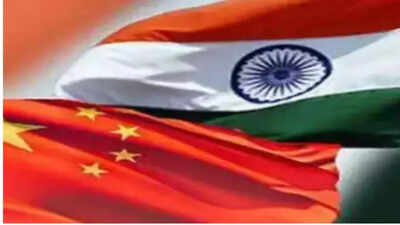Chinese firms Haier, Shanghai Highly embrace minority stakes in India amid US trade war: Report

Amid the trade war with US, Chinese companies Shanghai Highly Group and Haier have shown increased willingness to comply with Indian regulations for business expansion, according to Economic Times sources.
They are now reportedly accepting minority ownership in joint ventures, a position they previously resisted, influenced by mounting US tariffs. Should Chinese firms face exclusion from the US market, maintaining an Indian presence becomes crucial. India had previously restricted Chinese investments following border conflicts in 2020.
Shanghai Highly, a prominent Chinese compressor manufacturer, has renewed discussions with Voltas, owned by Tata, regarding a manufacturing partnership, now accepting a minority position. Similarly, Haier, ranking third in Indian electronics sales, has consented to divest majority control of its local operations. “There is a complete change in attitude of the Chinese companies, who are now extremely comfortable to own minority ownership in an Indian joint venture or form technical alliance,” said Rajesh Agarwal, director at Bhagwati Products, a telecom and electronics contract manufacturer, as quoted by ET.”Chinese companies don’t want to lose business since India is a big market and there is scope for exports under the tariff regime. The icing on the cake is the PLI scheme, which will make production cost neutral as compared to China,” he added.
Meanwhile, Haier initially planned to sell up to 26% stake to a strategic partner, as government restrictions on Chinese FDI limited its expansion. However, the October-initiated sale process encountered delays. Currently, Haier is reportedly negotiating with Indian companies and private equity funds to sell 51-55% ownership.
Chinese firms, facing increased US tariffs, are demonstrating greater flexibility in Indian negotiations. The government has indicated approval for joint ventures with Chinese companies under specific conditions: minority Chinese ownership, Indian-dominated boards, and contributions to local production through value addition or technology transfer.
Shanghai Highly has embraced technical partnerships, offering production expertise and technology transfer. Their previous joint venture with Voltas, proposing 60% Chinese ownership, was rejected under Press Note 3 regulations. Recently, Shanghai Highly established a technical collaboration with PG Electroplast for AC compressor manufacturing, involving technology sharing without equity participation.PG is establishing a Rs 350 crore facility near Pune with an annual capacity of 5 million units.
This comes as US President Donald Trump has escalated his trade war with China, imposing tariffs of up to 245% on Chinese imports, impacting industries like tech, critical minerals, and consumer goods. This aggressive stance has led to a shift in global trade dynamics, with India emerging as a key beneficiary. India’s low exposure to US trade, its non-retaliatory approach, and its manufacturing incentives, including $26 billion in subsidies under the “Make in India” campaign, have attracted foreign investments.
Apple has significantly ramped up production in India, with a 60% increase in iPhone manufacturing, making 1 in 5 iPhones there. India’s tariff-free status for iPhones shields it fromTrump’s tech tariffs. The country also benefits from tax breaks and improved infrastructure, positioning it as a scalable manufacturing alternative to China.
Despite challenges like a skilled labor shortage and reliance on Chinese inputs, India is increasingly seen as a stable, attractive option for companies diversifying production. Global funds have responded positively, pouring $25 billion into Indian markets in 2025.
Read more: Trump’s tariff blitz on China may have an unexpected winner- India





